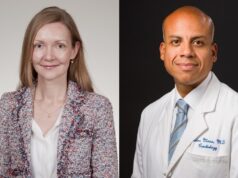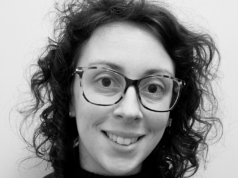In Freisland in the very north of Holland, 13 hospitals have come together to choose whether patients with abdominal aortic aneurysms (AAAs) should have endovascular or surgical treatment. Only two of the hospitals in the group do endovascular AAA procedures: the University Hospital of Groningen and the Martini Zeikenhuis, which is also in Groningen. The other 11 do only surgery. If some of their patients are suitable for endografting, they are normally sent to Eric Verhoeven in Groningen for treatment. Verhoeven said, “We have a meeting two times a month to discuss the patient cases. If that period is going to be too long for some cases colleagues send me x-rays. I try to avoid seeing the patient because the patient would then want to be treated at the University Hospital and we can’t take all of the patients.
The breakdown of endovascular and surgical procedures in the group is roughly 40% endovascular: 60% surgical. Verhoeven believes in the endovascular technique because the procedure reduces mortality and morbidity. His team has had only one death in the past 250 patients during the endografting procedure. They are quite aggressive in their selection for endovascular AAA, taking patients of any age provided the patient is aware of all of the risks. They have already placed an endograft in the abdominal aorta of a 49-year-old man. They are careful about the configuration of the aneurysm and generally the aneurysm must be more than 5cm before the procedure is done. Aneurysms of between 4cm and 5cm are operated on if the growth has been rapid, for example over the past two to three years. Verhoeven told Vascular News that they could be more aggressive in endografting. These days they are very careful in their choice for the endovascular procedure, paying attention to much more than just the anatomy of the disease in the AAA patients. If a patient is a candidate for the DREAM trial the patient is then given that option, although most refuse.
Verhoeven also organises a thoracic workshop three times a year. Groningen University Hospital also caters for rupture cases, and is organised to treat these patients rapidly under local anaesthesia. The mid-term results of Groningen University Hospital’s aortic rupture repair are due to be published shortly.













